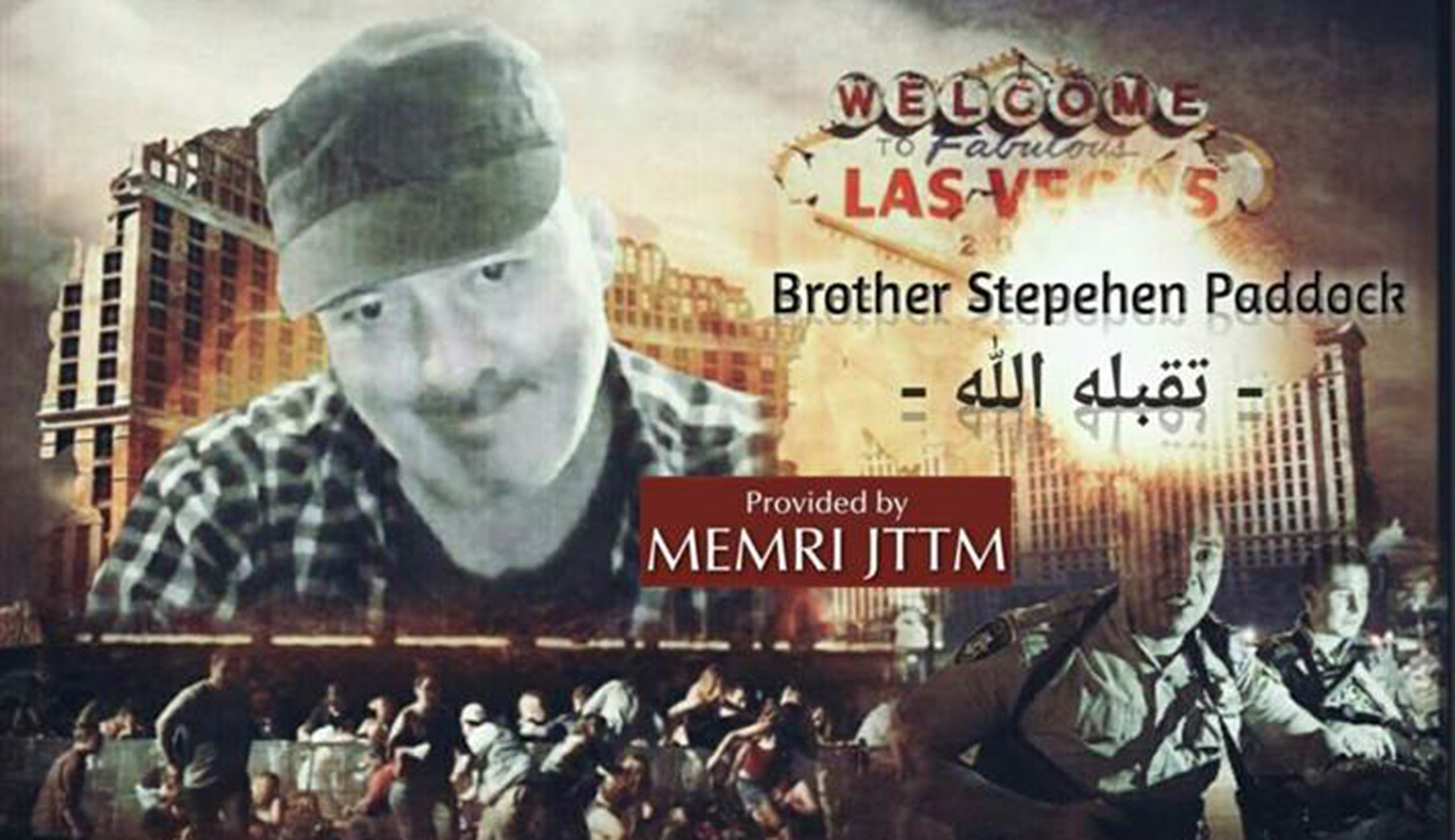Terrorism experts are reacting cautiously to an Islamic State claim that the gunman behind the mass shooting in Las Vegas Sunday night was a “soldier” of the terrorist group who had converted to Islam months ago.
The FBI has said that so far there is no evidence of any connection to international terrorism.
The ISIS claim came within hours of the massacre in which at least 58 people were killed, and more than 500 wounded. According to SITE Intelligence Group, which monitors extremist messaging sites, said Monday afternoon that the 64-year-old shooter, Stephen Paddock, had been given the name Abu Abdul Barr al-Amriki by ISIS.
BREAKING: #ISIS issued a formal communique for the #LasVegas shooting and identified the shooter as “Abu Abdul Barr al-Amriki” pic.twitter.com/xnXNfvXwUg
— SITE Intel Group (@siteintelgroup) October 2, 2017
Yet ISIS has a history of inflated and inaccurate claims, says Matthew Levitt, director of The Washington Institute’s Stein Program on Counterterrorism and Intelligence.
“They are quite liberal with their claims of responsibility because truth is really not important to them,” Levitt said. “What is important to them is the media effect, of spinning up the media and creating a sense in the public that they are everywhere or maybe they are everywhere, that their ability to inspire attacks continues even in the face of battlefield defeat, first in Mosul and now we are seeing Raqqa.”
But Steven Stalinsky, executive director of Middle East Media Research Institute, is not so quick to dismiss the claim. He noted the language posted on the group’s Amaq news agency site matched the language of previous claims that turned out to be true.
Stalinsky says when an attack is carried out by someone with no formal connection to ISIS, they are typically referred to as a “soldier” who has often pledged allegiance in an email or online to the terrorist group.
“I am reserving judgment,” Stalinsky said. “But in the past when they claim an attacker is a soldier, somehow there has generally been a connection.”

This image is provided by The Middle East Media Research Institute.
This summer, ISIS claimed responsibility for an attack on a casino in the Philippines, but local authorities later said a heavily indebted gambling addict was trying to rob the casino.
Law enforcement authorities will be searching for emails or other communications that might suggest whether the gunman was inspired by ISIS propaganda, even if he had no contact with the group.
Paddock killed himself before police could capture him.
Rita Katz, director of SITE Intelligence Group, tweeted that Monday’s claim amounts to one of the group’s “strangest,” since early reports on Paddock’s past show none of the typical signs of radicalization, such as posts on social media, foreign travel, a history of religious extremism, etc.
9) Of all #ISIS claims of attacks, #LasVegasShooting is the strangest. Such attackers usually show indicators online ,travels, history, etc
— Rita Katz (@Rita_Katz) October 2, 2017
Clark County Sheriff Joseph Lombardo called the mass shooting from a 32nd floor window of the Mandalay Bay hotel a “lone wolf” attack, but police have released no information on religious background or speculated on a possible motive.
Meanwhile, various pro-ISIS websites have been celebrating the carnage, according to the Middle East Media Research Institute.
One graphic on a channel named Las Vegas USA shows an image of President Trump waving and the aftermath of an attack. The words say, “The so called President Trump can’t help you survive, you should be scared, long night is coming Americans, either you submit willingly or be prepared for your men to be slaughtered and your women enslaved.”
On the Telegram channel, an image of Paddock is posted with the caption: “O’ Lion of Tawhid [monotheism], May Allah Accept from you. You will be long remembered as the lion who avenged for his brothers,” according to the terrorist monitoring group.

